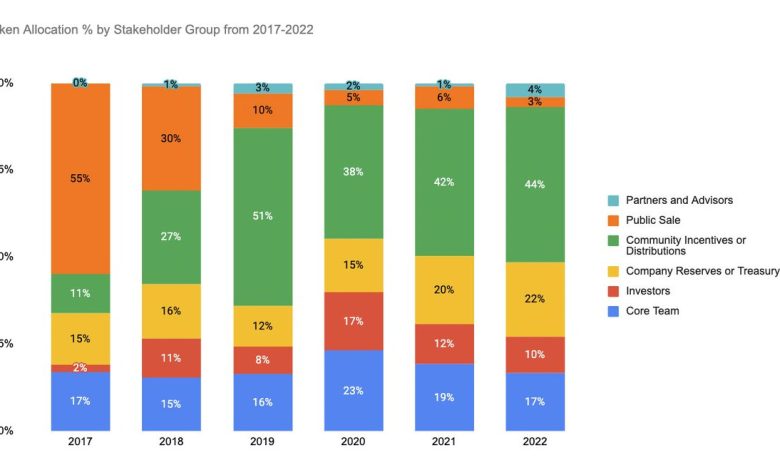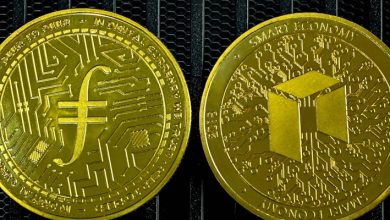Future Trends in Token Analysis

- Introduction to Token Analysis
- The Rise of Artificial Intelligence in Token Analysis
- Predictive Modeling in Token Analysis
- The Impact of Blockchain Technology on Token Analysis
- Tokenization of Assets: A Growing Trend
- Regulatory Challenges in Token Analysis
Introduction to Token Analysis
Token analysis is a crucial aspect of understanding the dynamics of the cryptocurrency market. By examining the behavior of tokens, investors can gain valuable insights into market trends and make informed decisions. In this article, we will explore the future trends in token analysis and how it can impact the cryptocurrency landscape.
The Rise of Artificial Intelligence in Token Analysis
One of the most significant trends in token analysis is the rise of artificial intelligence (AI) technology. AI has revolutionized the way tokens are analyzed by providing more accurate and efficient insights into token performance and market trends. AI algorithms can process vast amounts of data in real-time, allowing analysts to make informed decisions quickly.
AI-powered token analysis tools can identify patterns and trends that may not be apparent to human analysts, helping investors make better investment decisions. These tools can also automate repetitive tasks, freeing up analysts to focus on more strategic aspects of token analysis.
Furthermore, AI can help predict future token performance based on historical data and market trends. By analyzing large datasets, AI algorithms can identify correlations and make predictions with a high degree of accuracy. This can give investors a competitive edge in the market and help them maximize their returns.
Overall, the rise of artificial intelligence in token analysis is transforming the way analysts approach the market. By leveraging AI technology, analysts can gain deeper insights, make more informed decisions, and stay ahead of market trends. As AI continues to evolve, we can expect to see even more advanced tools and capabilities that will further enhance the field of token analysis.
Predictive Modeling in Token Analysis
One of the emerging trends in token analysis is the use of predictive modeling. This technique involves using statistical algorithms to forecast future token prices based on historical data and market trends. By analyzing patterns and correlations in token data, predictive modeling can help investors make more informed decisions about buying, selling, or holding tokens.
With the increasing complexity of the cryptocurrency market, predictive modeling offers a valuable tool for traders and analysts to stay ahead of the curve. By leveraging machine learning and data analytics, predictive modeling can provide insights into potential price movements and market trends that may not be apparent through traditional analysis methods.
Furthermore, predictive modeling can help identify potential risks and opportunities in the token market, allowing investors to mitigate losses and capitalize on profitable trades. By incorporating predictive modeling into their analysis toolkit, traders can gain a competitive edge in the fast-paced and volatile world of cryptocurrency trading.
The Impact of Blockchain Technology on Token Analysis
The impact of blockchain technology on token analysis is profound and far-reaching. Blockchain technology has revolutionized the way tokens are created, traded, and analyzed. By utilizing decentralized ledgers, blockchain technology ensures transparency, security, and immutability in token transactions.
One of the key benefits of blockchain technology in token analysis is the ability to track the entire transaction history of a token. This transparency allows analysts to verify the authenticity of tokens and detect any suspicious activities. Additionally, blockchain technology enables real-time monitoring of token movements, providing valuable insights into market trends and investor behavior.
Furthermore, blockchain technology has facilitated the development of advanced analytical tools that can process large volumes of token data quickly and accurately. These tools use algorithms and machine learning to identify patterns, correlations, and anomalies in token transactions, helping analysts make informed decisions.
In conclusion, blockchain technology has significantly enhanced token analysis by providing transparency, security, and advanced analytical capabilities. As the technology continues to evolve, we can expect further innovations in token analysis that will shape the future of the cryptocurrency market.
Tokenization of Assets: A Growing Trend
Tokenization of assets is a growing trend in the financial industry, with more and more companies looking to digitize their assets through the use of blockchain technology. This process involves converting real-world assets into digital tokens that can be traded on a blockchain platform. By tokenizing assets, companies can increase liquidity, reduce transaction costs, and streamline the trading process.
One of the key benefits of asset tokenization is the ability to fractionalize ownership, allowing investors to purchase smaller portions of high-value assets. This opens up investment opportunities to a wider range of individuals who may not have had access to traditional asset classes. Additionally, tokenization can help to improve transparency and security, as all transactions are recorded on the blockchain and cannot be altered.
As the popularity of tokenization continues to grow, regulators are beginning to take notice and are working to establish guidelines for the industry. This increased oversight is expected to bring more legitimacy to the tokenization market and attract a wider range of investors. Overall, the tokenization of assets is poised to revolutionize the way we think about investing and trading in the future.
Regulatory Challenges in Token Analysis
One of the significant challenges in the field of token analysis is navigating the complex regulatory landscape. Governments around the world are still grappling with how to classify and regulate tokens, leading to uncertainty for analysts and investors alike. This lack of clear guidelines can make it difficult to assess the legal implications of token transactions and investments.
Regulatory challenges in token analysis can vary widely depending on the jurisdiction. Some countries have taken a proactive approach to regulating tokens, while others have been more cautious or even hostile towards them. This patchwork of regulations can create compliance issues for analysts working across borders, as they must navigate different legal frameworks and requirements.
Furthermore, the rapid pace of innovation in the token space means that regulations are constantly evolving. Analysts must stay up-to-date on the latest developments in order to ensure that their analyses are compliant with current laws and regulations. Failure to do so could result in legal repercussions for both analysts and the organizations they work for.
In conclusion, regulatory challenges in token analysis are a significant hurdle that analysts must overcome in order to provide accurate and reliable insights. By staying informed about the latest regulations and working with legal experts when necessary, analysts can navigate this complex landscape and continue to provide valuable analysis to their clients.




